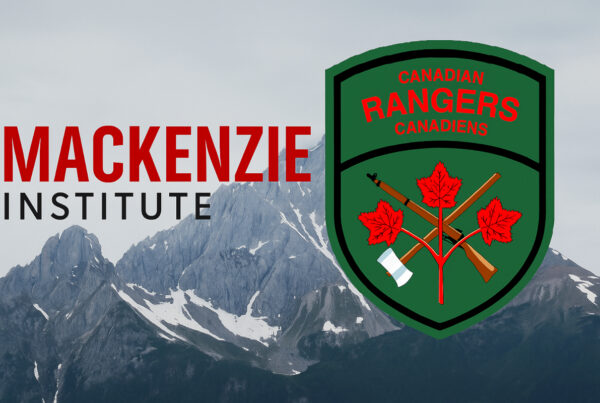
Potential war between Israel and Lebanon (DALL-E)
In a dramatic escalation of regional tensions, multiple countries, including Canada, Germany, Saudi Arabia, and the United States, have urged their citizens to leave Lebanon immediately. This urgent advisory follows the recent skirmishes and escalating threats between Israel and Hezbollah, the powerful militant group based in Lebanon.
Rising Tensions and Immediate Threats
The assassination of senior Hamas officials in Beirut has intensified fears of a broader conflict. Hezbollah’s leader, Hassan Nasrallah, has issued severe threats in response to the rising hostilities, promising an unprecedented retaliation against Israel. In a recent speech, Nasrallah declared, “If the enemy thinks about waging war against Lebanon, then our fighting will be with no ceiling, with no limits, with no rules. And they know what I mean.”
This rhetoric, combined with ongoing border skirmishes between Hezbollah and Israeli forces, has raised alarms internationally. Governments are not only concerned about the safety of their citizens but also the potential for a broader regional conflict that could spiral out of control.
Saudi Arabia’s recent call for its citizens to leave Lebanon marks a significant escalation in the regional response to the growing tensions. As the first Middle Eastern country to issue such an advisory, Saudi Arabia’s move underscores the heightened concern over potential conflict spillover and the broader implications for regional stability. This action highlights the seriousness of the situation and may prompt other regional countries to follow suit, further isolating Lebanon and signaling the potential for widespread instability in the Middle East. Saudi Arabia’s proactive stance also reflects its strategic interests in maintaining security and stability in a region already fraught with multiple conflicts and political tensions.
Government Advisories and Responses
Canada has been at the forefront of advising its nationals to evacuate Lebanon. The Canadian government has reiterated its warning, highlighting the risks posed by the current volatile situation and the possibility of commercial flights being disrupted if hostilities intensify. Other countries, including Germany, Sweden, the Netherlands, and several Gulf states, have issued similar advisories.
Germany’s foreign ministry, for instance, has advised all its citizens to register on the crisis preparedness list and leave Lebanon as quickly as possible. The German embassy in Beirut has warned about the danger of staying in Lebanon, emphasizing the unpredictable nature of the conflict and the likelihood of escalated violence.
Broader Geopolitical Implications
The potential conflict between Israel and Hezbollah transcends a bilateral issue, emerging as a flashpoint with profound geopolitical ramifications. This situation is intricately tied to the broader dynamics of Middle Eastern politics, especially considering the influence of US policies and their unwavering support for Israel. Nasrallah, the leader of Hezbollah, has frequently condemned the United States for its role in the region, portraying the conflict not just as an Israeli initiative but as part of a broader American agenda. This perspective resonates deeply in the region, fueling anti-American sentiment and complicating diplomatic efforts.
Regional Alliances and Proxy Wars
Hezbollah’s extensive ties with other regional actors amplify the potential for a wider conflict. The group’s close relationship with Iran is particularly significant. Iran’s influence extends through various militias in Iraq, Syria, and Yemen, creating a network of proxy forces that could be mobilized in the event of a broader conflict. Iranian-backed militias in Iraq have already demonstrated their capacity to target American interests, launching numerous attacks on US forces in Iraq and Syria as a response to the Israel-Hamas war.
In Yemen, the Houthi rebels, also supported by Iran, have engaged in actions that signal their readiness to join the broader conflict. They have attacked international shipping in the Red Sea and launched missiles towards Israel, showcasing the potential for the conflict to spread beyond the immediate borders of Lebanon and Israel.
The Risk of Multi-Theater Warfare
The interconnections between these various groups highlight the risk of a multi-theater war. Should hostilities escalate, Israel could find itself facing coordinated attacks on multiple fronts, from the Lebanese border to the Red Sea. Such a scenario would not only strain Israeli military resources but also have severe implications for global security and economic stability. The involvement of key international shipping routes, such as the Red Sea, underscores the potential for widespread disruption.
The Role of Global Powers
Global powers, particularly the United States and Russia, play crucial roles in the unfolding dynamics. The US, as a staunch ally of Israel, is deeply invested in preventing an all-out war. This is evident from the diplomatic efforts and high-level visits by US officials to de-escalate tensions. The presence of American military assets in the region, including an assault ship in the Mediterranean, further highlights the US commitment to deterring a broader conflict.
Conversely, Russia’s position is more complex. While officially maintaining a stance of neutrality, Russia’s alliances with Iran and Syria could indirectly influence the conflict dynamics. Russian support for the Assad regime in Syria has implications for Hezbollah, given the group’s operational base in Syrian territory. This adds another layer of complexity to the geopolitical landscape.
Canada’s Role and Preparations
For Canada, the situation in Lebanon is a stark reminder of the complex and often volatile nature of Middle Eastern geopolitics. The Canadian government is closely monitoring the situation and has put in place measures to assist citizens wishing to leave Lebanon. This includes coordination with airlines and other governments to ensure safe passage for evacuees.
As the situation develops, Canada’s foreign policy and humanitarian response will be critical. Ensuring the safety of its citizens abroad, while navigating the intricate diplomatic waters of Middle Eastern politics, will test Canada’s resolve and strategic acumen.
The call for immediate evacuation from Lebanon by several Western nations underscores the gravity of the situation. With tensions at an all-time high and the threat of a significant conflict looming, these advisories serve as a stark warning of the unpredictable and dangerous nature of the current geopolitical landscape in the Middle East.
How the War Might Unfold
The potential for conflict between Israel and Hezbollah is deeply concerning, particularly when considering the lessons from the last major confrontation between these two forces in 2006. The 2006 Lebanon War, also known as the Israel-Hezbollah War, lasted 34 days and resulted in significant casualties and destruction. Over 1,200 Lebanese, mostly civilians, and 165 Israelis were killed, with extensive damage to Lebanon’s infrastructure and a large number of displaced persons.
Lessons from the 2006 Lebanon War
The 2006 war was characterized by intense aerial bombardments, ground incursions, and significant rocket fire into northern Israel by Hezbollah. The conflict exposed vulnerabilities on both sides and highlighted the devastating impact on civilian populations. Despite the heavy losses, Hezbollah’s resilience and ability to inflict damage on Israeli territory were seen as a strategic victory for the group. Conversely, Israel’s military faced criticism for its preparedness and strategic execution.
Differences in the 2024 Context
- Advanced Military Technology:
- Drones and UAVs: One of the most significant differences in a potential 2024 conflict would be the use of advanced military technologies, particularly drones and unmanned aerial vehicles (UAVs). Both Israel and Hezbollah have significantly upgraded their drone capabilities since 2006. Israel’s military now employs advanced drones for surveillance, targeted strikes, and intelligence gathering, providing a substantial tactical advantage.
- Hezbollah’s Capabilities: Hezbollah, too, has improved its drone capabilities with support from Iran, which has provided advanced UAV technology. These drones could be used for reconnaissance and offensive operations against Israeli targets, increasing the complexity of the battlefield.
- Precision-Guided Missiles:
- Since 2006, Hezbollah has reportedly acquired precision-guided missiles that could target specific infrastructure and military sites in Israel with greater accuracy. This development poses a significant threat to critical facilities and could escalate the conflict quickly if key assets are hit.
- Cyber Warfare:
- The advent of cyber warfare adds another layer to the potential conflict. Both sides have developed cyber capabilities that could disrupt communication networks, infrastructure, and military operations. Cyber attacks could be used to undermine each other’s defenses, leading to a more unpredictable and rapidly changing conflict scenario.
- Civilian Impact:
- Given the densely populated areas in southern Lebanon and northern Israel, the impact on civilians could be even more severe than in 2006. The use of advanced weaponry and cyber attacks could exacerbate humanitarian crises, with higher casualties and more extensive displacement of populations.
Strategic Considerations
A new conflict would also be shaped by the strategic interests and alliances of regional and global powers. The involvement of Iran in supporting Hezbollah, and the United States’ backing of Israel, creates a proxy dimension that could draw in additional actors, potentially escalating the conflict into a broader regional war. The international community’s response, particularly efforts by countries like Canada to mediate or provide humanitarian aid, will be crucial in managing the fallout and seeking a resolution to the hostilities.
While the specter of a renewed conflict between Israel and Hezbollah is alarming, the advancements in military technology and the broader geopolitical stakes make it a significantly different and potentially more devastating scenario compared to the 2006 war. The urgency of the current evacuation advisories reflects the seriousness of the threat and the need for heightened preparedness and diplomatic efforts to avert a full-scale war.








